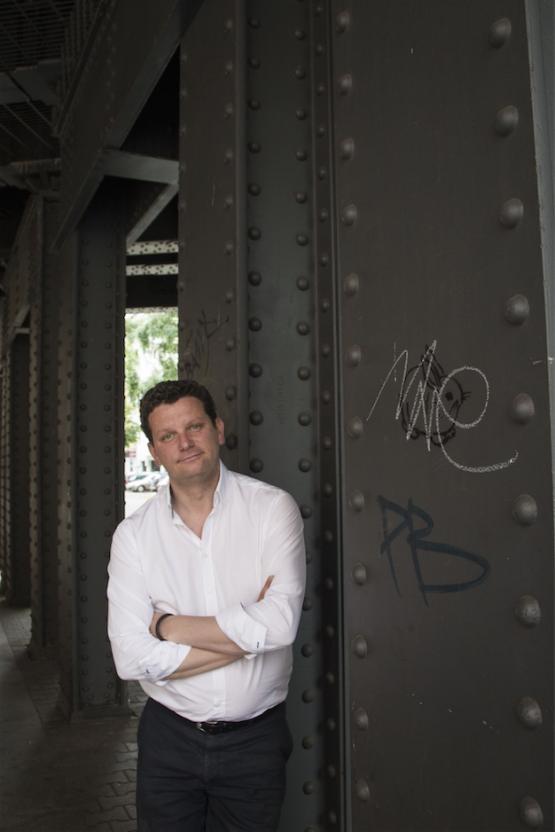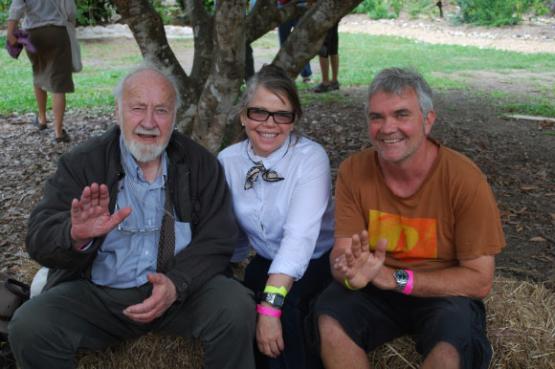
An Interview with Viniculture's Holger Schwarz
3 min read
Based in Berlin, Viniculture is a wine importer, wine shop and one of our RAW WINE Berlin partners. They list quite a few natural and low-intervention organic and biodynamic wines on their books so we put a few questions to its MD, Holger Schwarz, to learn a bit more about the Berlin scene. Enjoy!
When (and why) did you start Viniculture?
Viniculture was one of the first wine shops in Berlin, founded 1984. I was working there since 1996, overtook the company in 2006 and changed the sortiment according to my gut feeling. Before anyone was talking about natural wine in Germany, we have these kind of wines since that time.
Why did you choose to work with natural and low-intervention wines?
I was just bored with the good – but increasingly technical similar- wines, mainly from Austria and Germany, which were very popular at that time (and still are). It’s a bit like in the highly rated restaurants in which they agree on the value of certain products and manufacturing techniques. At the end there is the same everywhere.
How receptive were people at the start? Has this changed?
In the beginning we got back every second bottle. It was awful. We simply used the returned bottles for further tasting – or drank them ourselves. Today we feel a much more open mind about natural wines. Our customers feel the enthusiasm of each of us at Viniculture – and want to participate in it. Enthusiasm and passion can not be forced. You have to live it.
From the outside, Germany seems a pretty green country – lots of emphasis on renewal energy, a vibrant organic food scene and yet RAW WINE growers sometimes mention that they find it tough selling their low-intervention, organic/biodynamic wines in Germany. Why do you think that is?
Classic German wines are characterized by fruit and often some residual sugar. Their stabilization is the easiest possible through filtration and higher sulfur levels. That’s why the taste difference to natural wine is bigger than for in example in France or Italy, where fruit is not the defining feature.
Moreover, most Germans buy their food in price-aggressive discounters and are accustomed to industrial food. In few countries is proportionally less spent on food and booze than in this country. Natural wines are the opposite and do so precisely because of the differences and changes. But things are changing, and having RAW WINE in Berlin helps a part.
What is the biggest challenge you face when selling low-intervention wines to the German on- and off-trades?
This biggest Challenge is to open the minds. Of course, we speak as a specialist with a knowledgeable clientele.
For many (especially men) wine has become a fetish. Once embarking on natural wines, the acquired knowledge to conventional wine loses importance. This is also a reason why a disproportionate number of women are enthusiastic about these wines.
We do a lot of tastings with sommeliers and restaurant owners to find out which wines are suitable. We take our partners by the hand and lead them on hidden paths to surprising and ultimately exhilarating discoveries. It’s all about curiosity and confidence.
Do you find it easier sharing these wines with drinkers or the trade?
Skeptics and those interested there are on both sides. Larger companies are more difficult to convince, because there the individuality is more of a disadvantage. It takes heart and passion to produce these wines, and also to sell them.
Do you have any top tips for restaurants, bars or shops who are keen to start listing low-intervention wines for the first time?
At Viniculture we all love cooking and trying. Mostly we first have a look to the restaurant concept and see where the problems and the wishes are. It is necessary to really understand the people working there and which guests you want to have. Going so far, the last (and easiest point) is the wine. The better you understand the restaurant, the better the choices and the charisma will be. Once opened, non sulfered can mostly be poured as wine by the glass, as a particular amount of oxydation already took place and they stay relatively stable in the bottle.
Do you have an all-time favourite (natural!) wine? Which one and why?
I fall in love too easily to just focus on a single wine. Producers like Joan Ramon Escoda and Jean Etienne Pignier impressed me a lot. I like the people behind these wines, feel their energy and boldness. That gives me a great deal.



